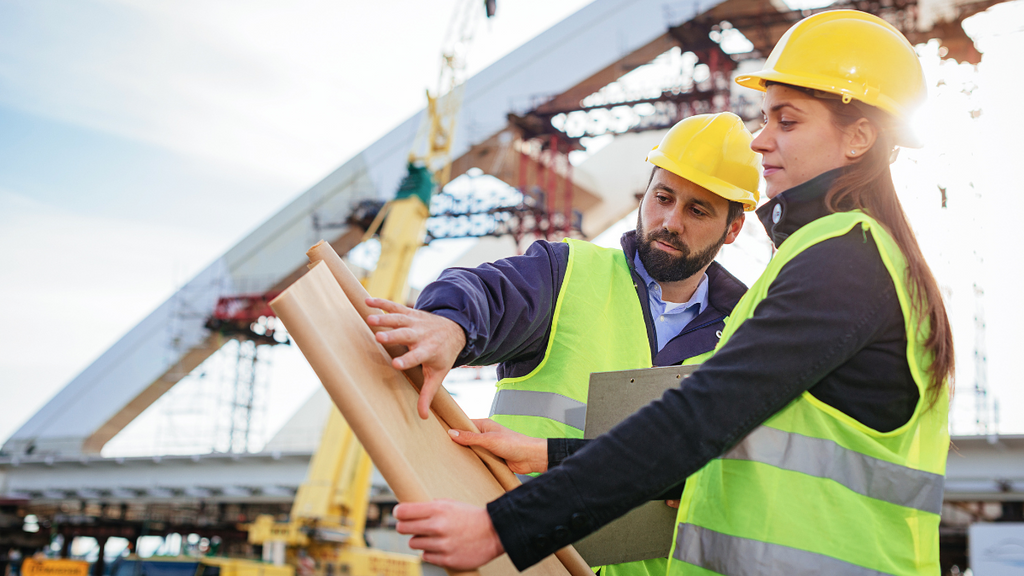The smart Trick of Geotheta That Nobody is Talking About
The smart Trick of Geotheta That Nobody is Talking About
Blog Article
Getting The Geotheta To Work
Table of ContentsThe Facts About Geotheta UncoveredGeotheta - An OverviewGetting The Geotheta To WorkRumored Buzz on GeothetaGeotheta for Dummies

They conduct website investigations, accumulate examples, perform laboratory examinations, and evaluate information to review the suitability of the ground for construction projects - Consulting Engineer. Based upon their findings, geotechnical designers offer referrals for structure style, slope security, maintaining frameworks, and reduction of geotechnical dangers. They collaborate with other professionals, such as engineers, structural designers, and building and construction groups, to make certain that geotechnical considerations are incorporated into the general job design and execution
By examining the behavior and homes of dirt and rock, they can identify potential geotechnical risks such as landslides, soil settlement, or slope instability. Their experience aids stop failures or accidents that can threaten lives and building. Here are some thorough duties and duties of a geotechnical designer: Website Examination: Geotechnical engineers conduct site examinations to gather data on subsurface problems.
They translate the data to recognize the buildings and actions of the soil and rock, including their stamina, leaks in the structure, compaction attributes, and groundwater conditions. Geotechnical Evaluation and Layout: Geotechnical designers examine the data accumulated during website investigations to examine the security and suitability of the site for building and construction tasks. They execute geotechnical calculations and modeling to examine variables such as bearing capability, negotiation, slope security, lateral earth stress, and groundwater circulation.
Geotheta Fundamentals Explained
Foundation Design: Geotechnical engineers play a critical duty in creating foundations that can safely sustain the desired framework. They analyze the dirt problems and tons demands to establish the ideal structure type, such as shallow structures (e.g., grounds), deep foundations (e.g (https://www.twitch.tv/geotheta/about)., stacks), or specialized techniques like soil enhancement. They consider factors such as negotiation limits, birthing ability, and soil-structure communication to establish optimum structure styles
They review construction plans, monitor site tasks, and perform field assessments to validate that the design recommendations are complied with. If unpredicted geotechnical problems arise, they examine the situation and provide recommendations for removal or changes to the design. Risk Evaluation and Mitigation: Geotechnical engineers examine geotechnical threats and threats connected with the project website, such as landslides, liquefaction, or soil erosion.

Collaboration and Communication: Geotechnical designers function very closely with other professionals involved in a project, such as architects, architectural designers, and building and construction groups. Efficient interaction and partnership are important to incorporate geotechnical considerations right into the total job layout and building process. Geotechnical designers provide technical expertise, answer questions, and ensure that geotechnical demands are met.
Geotheta Things To Know Before You Buy
Below are some sorts of geotechnical designers: Foundation Designer: Foundation designers concentrate on designing and analyzing foundations for structures. They examine the dirt conditions, lots needs, and site features to identify one of the most proper foundation type and layout, such as superficial structures, deep foundations, or specialized strategies like pile foundations.
They examine the aspects influencing incline security, such as soil buildings, groundwater problems, and incline geometry, and establish methods to avoid slope failings and minimize dangers. Earthquake Engineer: Quake engineers focus on analyzing and developing frameworks to withstand seismic forces. They analyze the seismic hazard of a website, review dirt liquefaction capacity, and develop seismic style criteria to make certain the security and strength of structures throughout quakes.
They execute field screening, collect examples, and assess the accumulated data to characterize the soil residential or commercial properties, geologic developments, and groundwater problems at a website. Geotechnical Instrumentation Designer: Geotechnical instrumentation designers concentrate on surveillance and measuring the actions of dirt, rock, and structures. They install and keep instrumentation systems that check elements such as soil negotiation, groundwater levels, slope activities, and structural variations to analyze efficiency and give early cautions of possible issues.
The Best Strategy To Use For Geotheta
They perform examinations such as triaxial examinations, combination examinations, straight shear tests, and permeability tests to gather data for geotechnical analysis and layout. Geosynthetics Engineer: Geosynthetics designers focus on the style and application of geosynthetic materials, such as geotextiles, geogrids, and geomembranes. They make use of these materials to boost dirt stability, enhance inclines, provide drainage services, and control disintegration.
They tend to be investigative individuals, which suggests they're intellectual, reflective, and investigative. They wonder, methodical, logical, analytical, and sensible. A few of them are likewise social, suggesting they're kind, charitable, participating, patient, caring, useful, understanding, tactful, and friendly. Does this seem like you? Take our cost-free profession test to figure out if geotechnical designer is one of your top career suits.
In the workplace setting, geotechnical designers use specialized software tools to carry out calculations, develop designs, and assess data. They prepare reports, testimonial task requirements, communicate with clients and group participants, and coordinate task activities. The workplace setting gives a helpful environment for study, evaluation, and collaboration with various other specialists associated with the task.
Not known Facts About Geotheta
They regularly visit task websites to conduct site examinations, assess geotechnical problems, and gather information for evaluation. These brows through include taking a trip to different locations, in some cases in remote or difficult terrains. Geotechnical a knockout post designers might do dirt sampling, conduct examinations, and screen building and construction activities to make certain that the geotechnical aspects of the job are being applied appropriately.
Geotechnical designers likewise function in specialized geotechnical research laboratories. Geotechnical laboratory designers work thoroughly in these atmospheres, taking care of testing tools, operating instruments, and tape-recording data.
Report this page